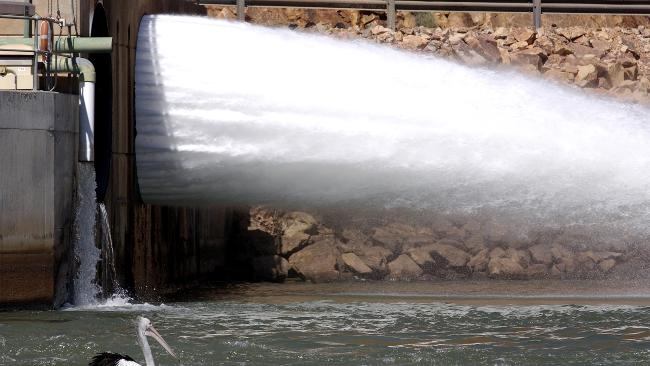Water progress commended
 The Productivity Commission says Australia deserves its place as a global leader in water management.
The Productivity Commission says Australia deserves its place as a global leader in water management.
But the Federal Government body has warned that more work is needed to meet the goals of the 2004 National Water Initiative.
The commission has released a draft report assessing Australia's water reform effort over the past decade, focusing on the development of water rights and trading, and the increased emphasis on environmental improvements.
The report does not cover the Murray-Darling Basin Plan, which is being reviewed in its own Productivity Commission review due next year.
Productivity commissioner Dr Jane Doolan found that the objectives of the National Water Initiative had “largely been met”.
She welcomed the creation of water rights and trading for its benefits to farmers, and said water metering, accounting and compliance systems were in place “in all jurisdictions”.
The commission’s report does call for water managers to consider removing more barriers to water trading.
It also recommends bringing water entitlements for extractive use — mining and coal seam gas extraction — in line with other users' entitlements.
One big call is for the vast number of governments, groups and agencies involved in water management to be streamlined.
The commission wants decisions about watering for environmental outcomes to be made at a local level where possible.
“You've got to integrate the delivery of water with what's happening on the ground: pest management, fishways, riparian restoration — all those things are important to make sure you get the environmental outcomes that you're after,” Dr Doolan said.
“It's possible to think about getting the local catchment management authority, which is the local waterway manager, to have a strong role and an ongoing role in delivering that water.”
The commission wants more indigenous voices and cultural objectives to be explicitly recognised in future water plans.
Dr Doolan said the National Water Initiative did not consider water allocation for Indigenous groups for economic purposes.
“We do think it's a matter for governments whether they want to provide those entitlements or not,” Dr Doolan said.
“But where they do, we think it should be within the existing water entitlement frameworks: in the south, buy entitlements on the markets [because] it's for consumptive use.
“In the north, if there's unallocated water, we'll allocate it from the consumptive pool.”
Dr Doolan did say she found the recent allegations of widespread water theft in the Murray-Darling system “disturbing”, but spared a detailed view for a later date.
“Next year we're doing the inquiry into the implementation of the Murray-Darling Basin Plan,” Dr Doolan said.
“That's when we will take a very deep dive into all those issues, including [compliance] and I suppose we'll be able to draw on the number of inquiries that are currently underway.
“Clearly the Murray-Darling Basin is the biggest effort in water recovery in the country.
“But the actual detail of how that plan has been implemented and how effective that is, that is for next year,” she said.
The commission will now take submissions on its draft report, with hearings planned in Canberra, Brisbane, Sydney, Melbourne, and Perth in October.
A final report is expected by the end of the year.








 Print
Print